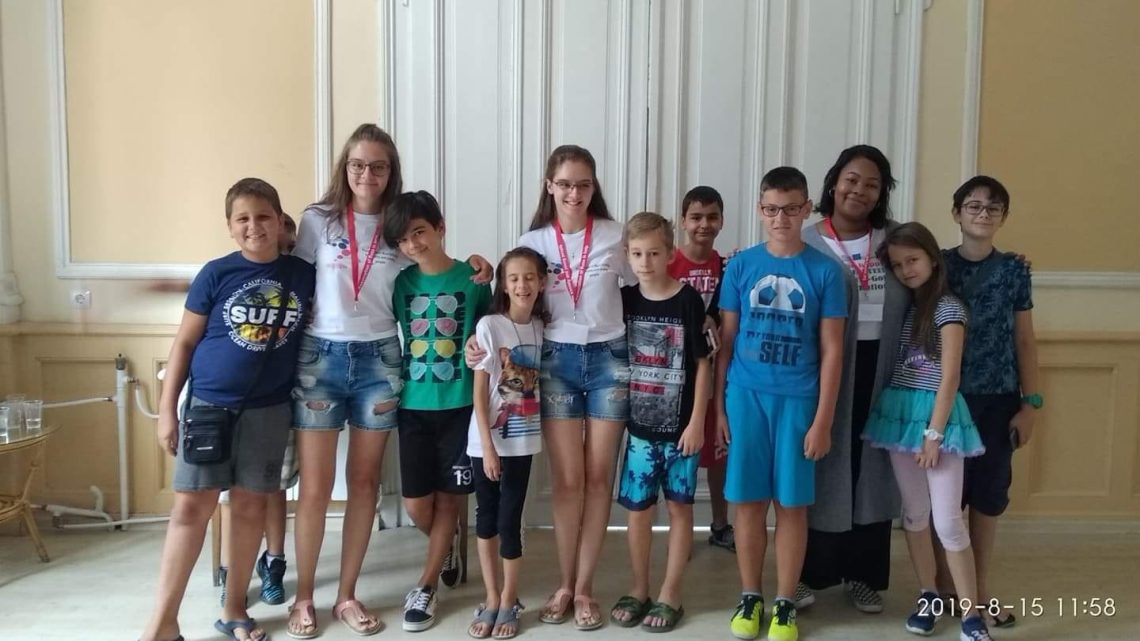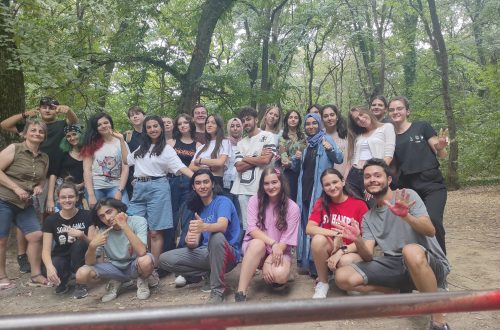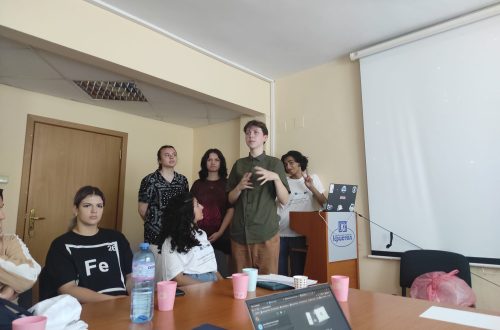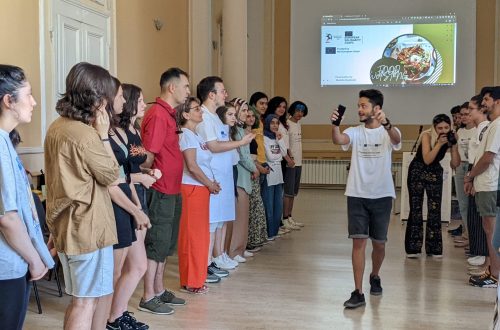I took part in a European Voluntary Service (EVS) project hosted by The Association of Ruse, titled ‘The Happy Volunteers of Ruse — Going International’‘. The aim and purpose of the project was to bring international volunteers from different countries together in the city of Ruse, Bulgaria, to work in the local community alongside residents to organise and deliver activities to locals and integrate successfully into the area.

My time in Ruse lasted six weeks and during my time there I was able to meet and have exchanges with a variety of people who contribute something to the society of Ruse. This included school children, university students, local volunteers, business owners, library staff, teachers and other international EVS volunteers from different projects.
One of the most memorable and significant aspects of the project for me was the English lesson course which I delivered to local school children. This was done in association with the local library of Ruse, ‘Regionalna Biblioteka L.Karavelov’, where school children of Ruse, between the ages of 10 and 14, were invited to refresh and develop their English language skills with a native speaker during the summer break from school. With our associate at the library, it was agreed that the course should be less formal and more interactive than the English lessons the students attended at school. With this brief, I used my experience of working with children and young people to teach English as a foreign language whilst using interactive, amusing and active methods to aid me in delivering the course.
I am pleased to say that the lessons were overall a success. The students generally responded well to the activities and enjoyed attending the course. There was also very positive feedback from the students’ parents, which was very pleasant to hear, along with positive feedback from the library staff we worked with to put on the course. However, there were also challenges in delivering these activities, which meant that it wasn’t always easy. For example, the ability of each student varied. Some students were quite advanced, whilst others knew only basic English. This created a challenge for me, as when preparing activities I had to ensure that I took the abilities of all students into consideration in order for the activities to be beneficial to all. However, from the challenges faced throughout the course, I was able to learn about being adaptable to situations in order to ensure the end goal is still achieved.The help of the local Bulgarian volunteers throughout the course made a big difference, and I am grateful for their contributions.
Being immersed into Bulgarian culture was another very important aspect of this project. Alongside the other project volunteers, I had the pleasure of being invited to a family home to experience a traditional Bulgarian dinner. We gathered outside on a warm weeknight evening, engaging in conversation, and trying unique Bulgarian cuisine. One of the dishes we were served, Pitka, is a visually beautiful bread, made for tearing and sharing at gatherings. Lutenitsa was my personal favourite. This is a tomato-based dip paired perfectly with bread. The evening was a great depiction of the type of social and relaxed evening many enjoy in the Balkan countries.
Outside of working on the project in Ruse, we had the opportunity to leave the city to discover other parts of Bulgaria. As Ruse doesn’t have one, we were in search of a beach where we could enjoy the sunshine and experience a side of Bulgaria which we had not yet seen. For this, we traveled to Varna. A combination of the warm sand, ocean breeze and shining sun made a very enjoyable trip for us. Aside from the beach, we also enjoyed visiting a museum showcasing all types of ‘retro’ items you can think of from cars to kids’ clothes. The wax work museum we visited had us in awe as we were surprised at how realistic the wax figures really were. Whilst we were there, we also had to let out our competitive sides during some games in the arcade.
During the project I learned that schools in Bulgaria begin each academic year with an opening ceremony. I was invited to attend one at a local school in Ruse. Here I saw a traditional Bulgarian dance and singing performance as well as speeches from the school staff and poetry from students. I also noticed the school was covered with flowers which students gifted to teachers as a token of respect and appreciation. Once the ceremony had ended, the students gathered with their classmates and teachers to commence the official start of the academic year.
Overall, I would say that my time in Ruse, Bulgaria has been an insightful experience. I have learned a lot about the country (being a resident) and met a number of incredible people. I have picked up some basic language skills (including leaning to read Bulgarian characters), as well as learning about Bulgaria, I am proud to have developed a number of personal skills in some areas. I was able to gain more experience in teaching and working with young people, being adaptable and living and working abroad.
I would like to say thank you to the Association Of Ruse for the opportunity I have been given and the experience which I have gained.





